Scientists Find This Popular Herbal Tea Helps Reduce Stress in Minutes

Just the act of brewing a pot or cup of tea is a soothing activity that promotes calm and serenity. “It’s really very mindful to put a kettle on the stove to brew a cup and wait a minute while it steeps in your cup,” Jeffrey Blumberg, professor emeritus of nutrition at Tufts University, tells AARP. While tea in general has a host of health benefits, some teas are better for reducing tension than others. Here’s one popular herbal tea that can help reduce stress and anxiety in minutes, according to experts.
RELATED: 30 Ways to Relax When You’re Totally Stressed Out.
Chamomile Tea Health Benefits
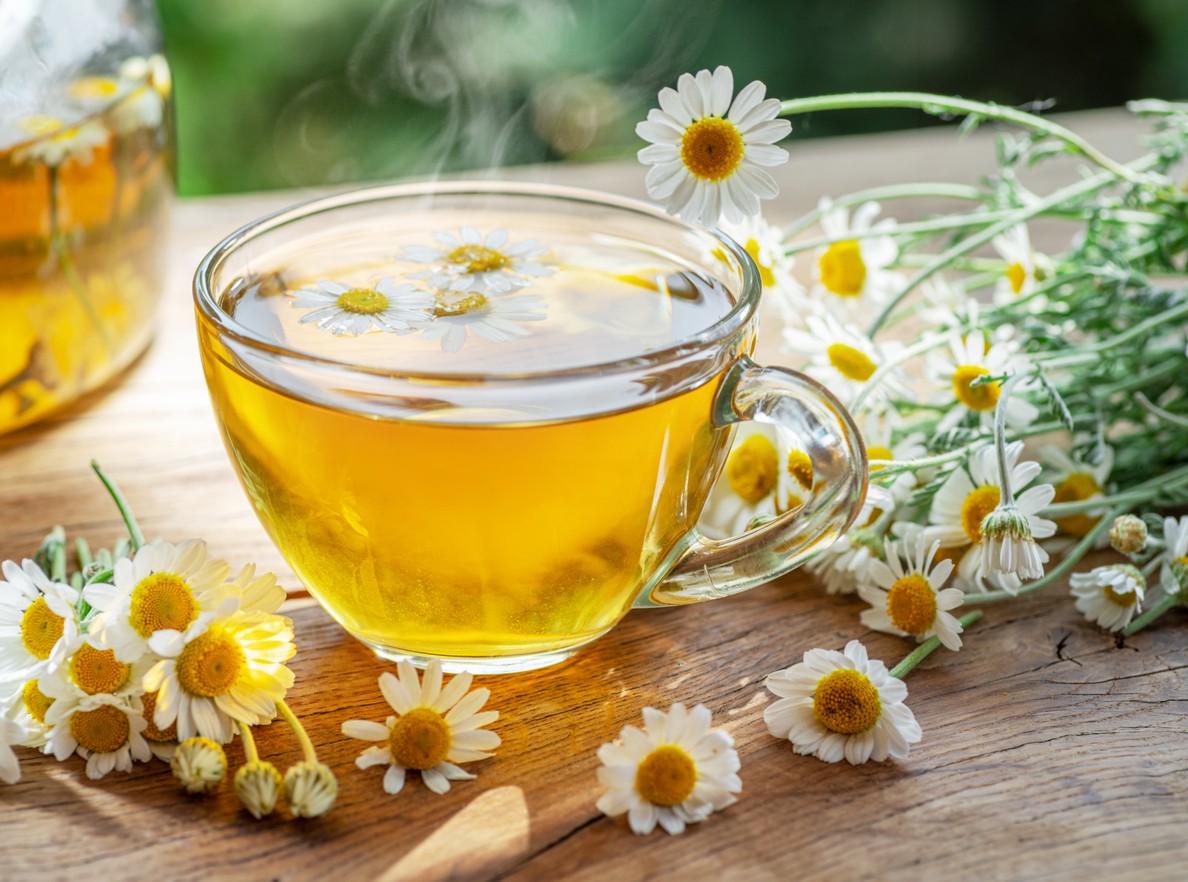
Chamomile is a herbal tea made from the flowers of the Asteraceae plant family. “People around the world have been using it as a natural remedy for several health conditions since ancient times,” says Harvard Health. “Chamomile contains a variety of bioactive phytochemicals, notably flavonoids which function as antioxidants. It also contains small amounts of minerals and vitamins, such as potassium, calcium, carotene and folate, among other nutrients. Research studies suggest several possible chamomile benefits, including a lower risk of death from heart disease, immune system support, and possible protection against some cancers.”
Chamomile Tea and Sleep
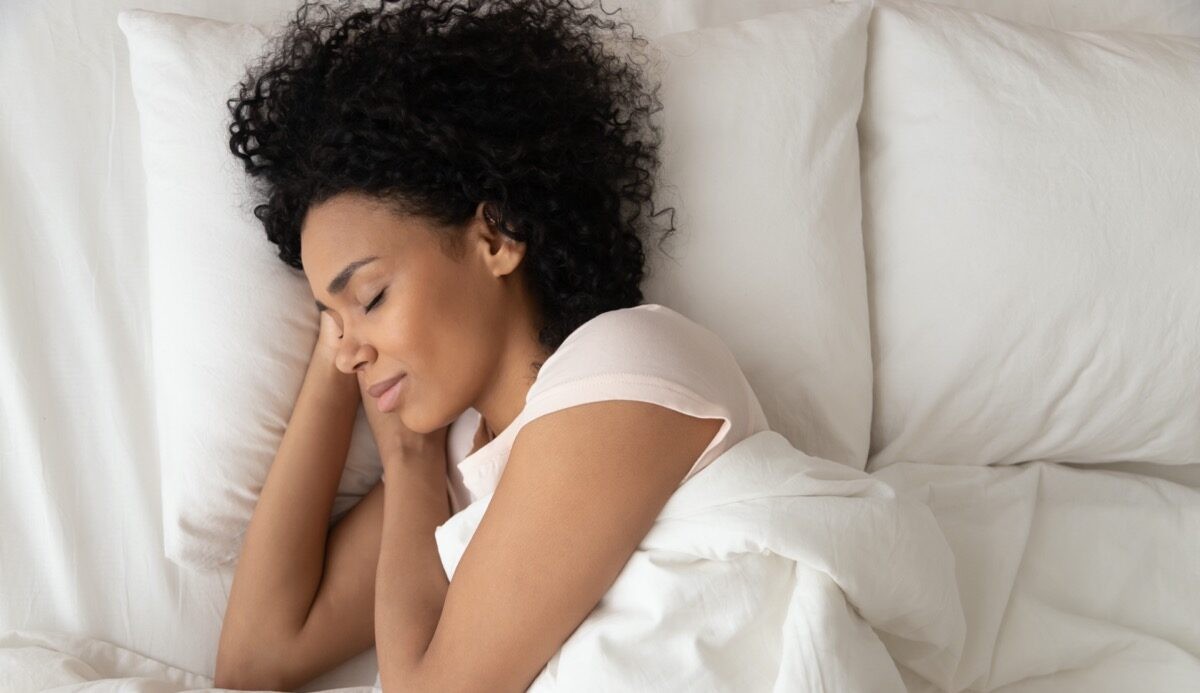
Chamomile is the ideal sleepytime drink. “Chamomile is a very gentle, supportive herb for all ages that you can consume daily,” Lindsay Kluge, LDN, nutritionist and U.S. herbal educator for Pukka Herbs, tells Oprah Daily. “[Chamomile is] an ideal sleep support because it doesn’t force your body into anything; it doesn’t knock you out, sedate you, or make you drowsy. The effect is like receiving a gentle, slow massage—subtle, comforting, and very effective.”
Chamomile Tea and Stress
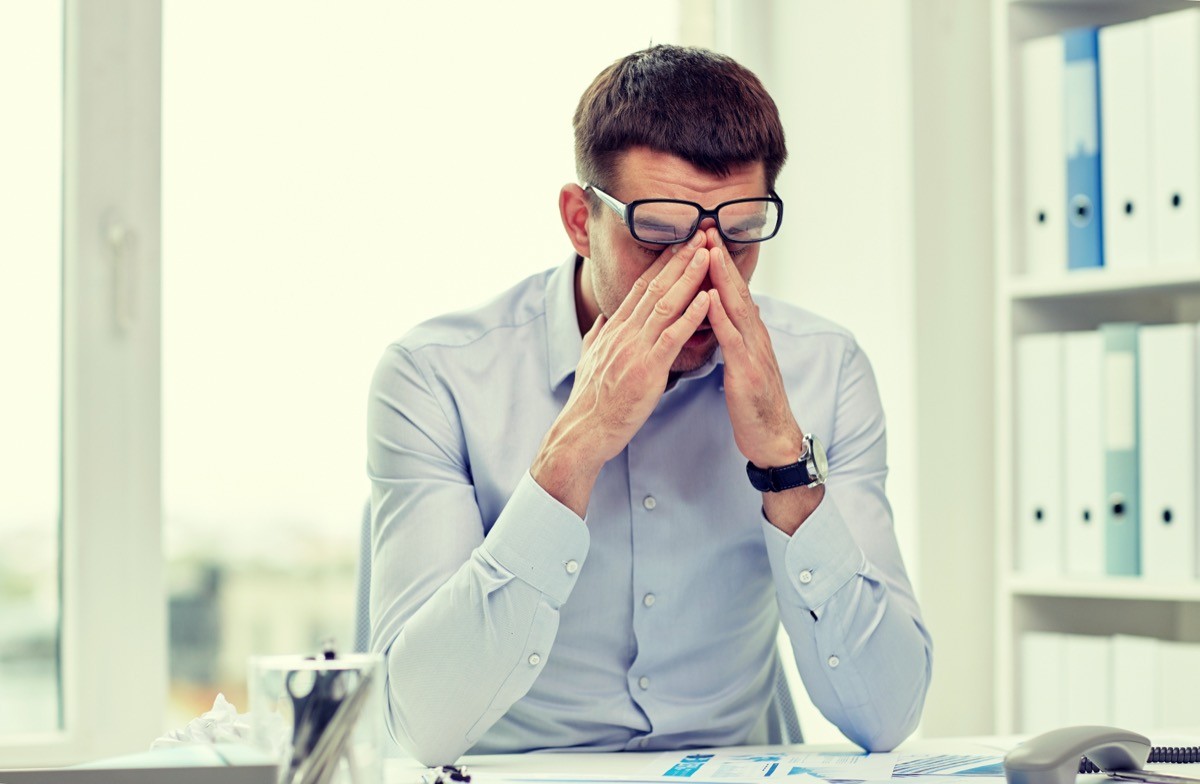
Chamomile tea has been used to mitigate stress and anxiety for hundreds of years. “A tea made with chamomile flowers, it has gentle notes of apple, with a mellow, honey-like sweetness in the cup,” according to Griffith University. “Chamomile tea is known to help mentally and physically. It alleviates anxiety and reduces stress. It is recommended to drink at night as it helps to improve sleep quality, helping you wake up rested and refreshed.”
RELATED: 7 Teas Proven to Help You Live Longer, According to Experts.
Chamomile and Flu
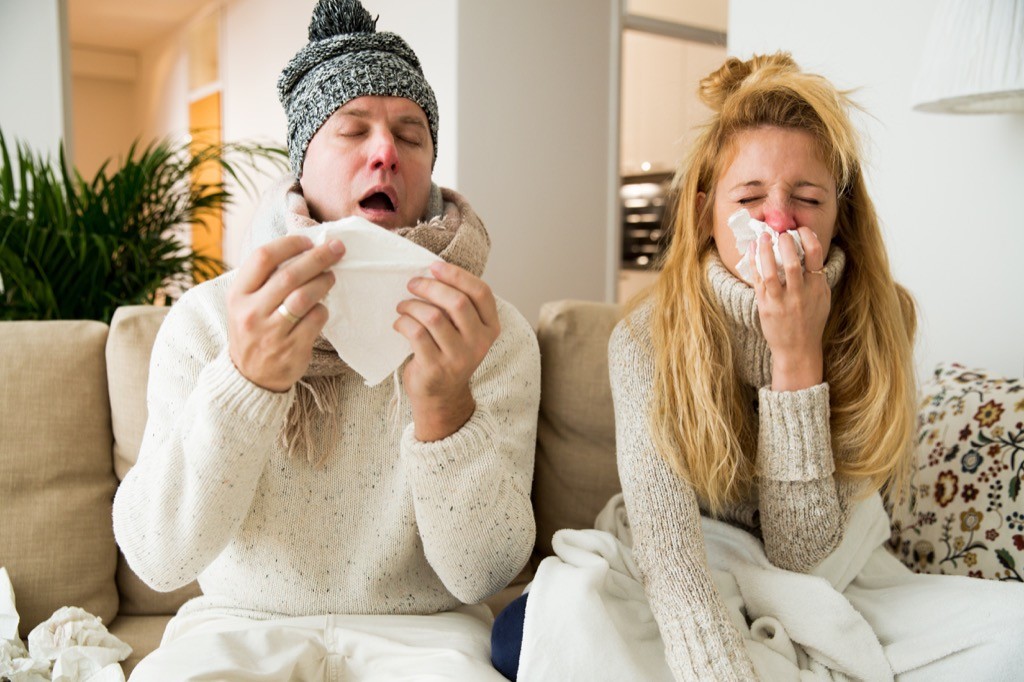
Chamomile tea can help lessen the symptoms of cold and flu. “Chamomile is a lovely option if you’re feeling under the weather,” Kluge says. “It’s naturally cooling, which helps to balance an overheated state, and is calming to the digestive tract, which can get out of balance when you’re ill or recovering from being sick.”
Chamomile Risks
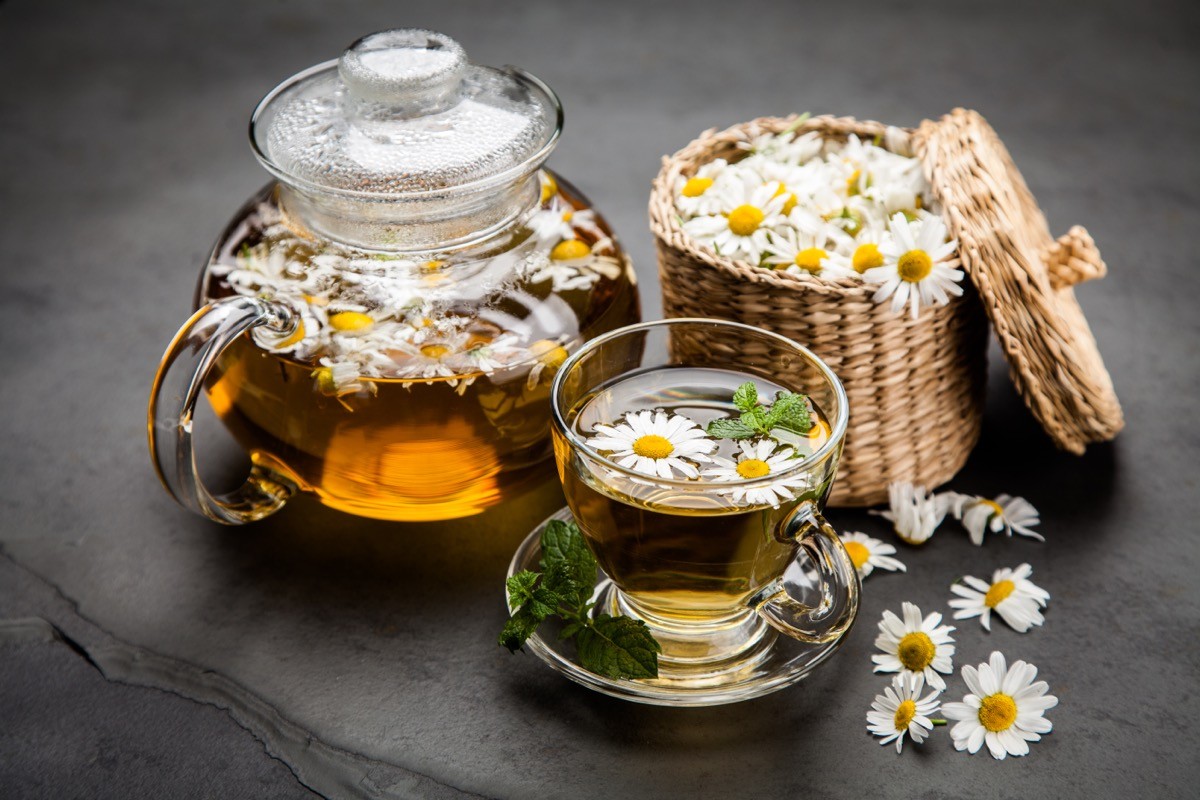
Chamomile is a safe choice of herbal tea but there are some caveats. “Chamomile may raise the risk of bleeding when used with blood-thinning medicines, especially if taken at high doses,” says Brent A. Bauer, MD, via the Mayo Clinic. “Use of chamomile can cause allergic reactions in some people who are sensitive to the family of plants that includes chamomile. Other members of this family are ragweed, marigolds, daisies and chrysanthemums. Do not use if you’re pregnant or breastfeeding.”